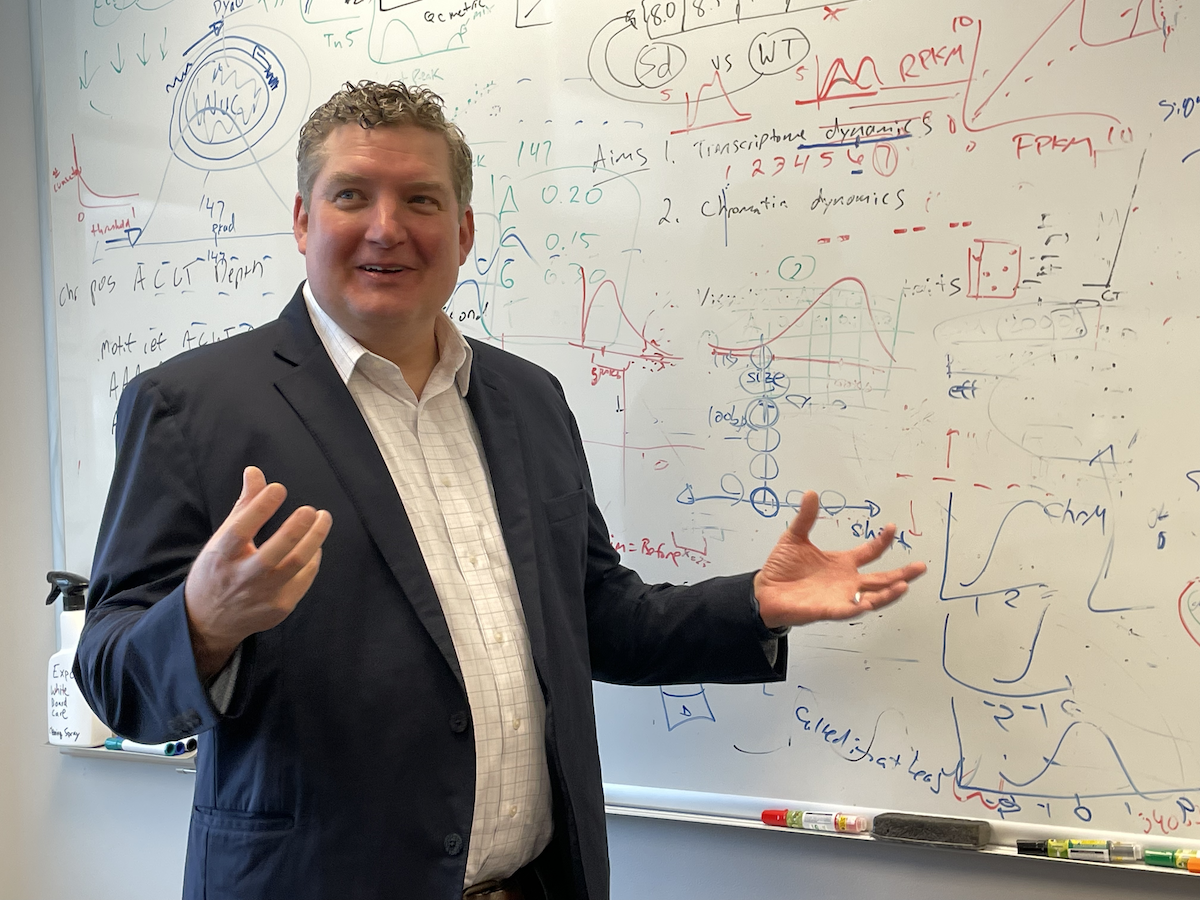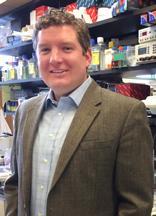The Outstanding Scientific Achievement Award from the American Diabetes Association (ADA) recognizes research in diabetes that demonstrates particular independence of thought and originality. The ADA announcement reads: “Dr. Parker has been a leader in the field and has made several notable discoveries that link context-specific epigenome signatures to diabetes genetic predisposition and have revealed a convergence of rare coding and common regulatory genetic variation on diabetes transcriptional regulatory networks.”
Stephen Parker, Ph.D.,(link is external) is an associate professor of Computational Medicine and Bioinformatics, Human Genetics, and Biostatistics, and director of the newly-created Epigenomic Metabolic Medicine Center (EM2C) at University of Michigan Medical School. Parker has co-led multiple studies that integrate genetic and genomic data to dissect regulatory mechanisms for diabetes and related metabolic traits. He currently leads projects on single-cell multi-omic data integration to translate complex trait signals into biological mechanisms and therapeutic insights. The major goal of the Parker’s laboratory is to generate mechanistic knowledge about how personalized disease predisposition is encoded in cell- and state-specific transcriptional regulatory circuits, with a focus on complex metabolic diseases including diabetes and related traits. Notably, while most research laboratories specialize in either wet or dry research, Parker is a leader in both data generation and computational analyses. His research has been published in many highly-ranked journals, including Nature (2023).
The ADA awards honor academics, health care providers, and educators who have contributed to substantial advances in diabetes care and research. “The diligent work of these passionate professionals is moving us closer to a world free of diabetes. Their contributions to research, prevention, and treatment are creating lasting change and improving the lives of people affected by diabetes,” said chief executive officer of the American Diabetes Association.
Parker will be recognized with this outstanding award at the ADA’s 84th Scientific Sessions(link is external), June 21–24, in Orlando, Florida. The ADA’s Scientific Sessions is the world’s largest scientific meeting focused on diabetes research, prevention, and care. More than 11,000 leading physicians, scientists, and health care professionals from around the world are expected to convene to unveil cutting-edge research, treatment recommendations, and advances toward a cure for diabetes.
“Please join me in congratulating Steve Parker on receiving this prestigious recognition from the ADA,” says Brian Athey, Michael Savageau Collegiate Professor and Chair, DCMB. Steve’s impact on the field of diabetes as a complex and polygenic and epigenomic trait, which has implications for personalized medicine and treatment in the future, cannot be over emphasized. His impacts on DCMB, the UM, nationally, and internationally will be felt for years to come.”
Cited article:Genetic risk converges on regulatory networks mediating early type 2 diabetes. Walker JT, Saunders DC, Rai V, Chen H-H, Orchard P, Dai C, Pettway YD, Hopkirk AL, Reihsmann CV, Tao Y, Fan S, Shrestha S, Varshney A, Petty LE, Wright JJ, Ventresca C, Agarwala S, Aramandla R, Poffenberger G, Jenkins R, Mei S, Hart NJ, Phillips S, Kang H, Greiner DL, Shultz LD, Bottino R, Liu J, Below JE, HPAP Consortium , Parker SCJ, Powers AC, Brissova M. Nature, 2023 Dec; 624 (7992): 621 - 629. DOI:10.1038/s41586-023-06693-2(link is external)


